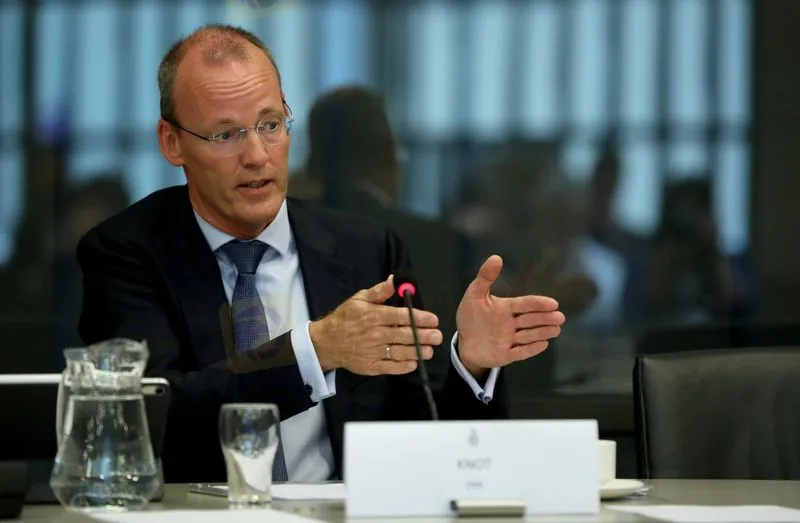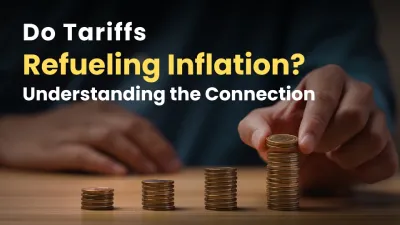简体中文
繁體中文
English
Pусский
日本語
ภาษาไทย
Tiếng Việt
Bahasa Indonesia
Español
हिन्दी
Filippiiniläinen
Français
Deutsch
Português
Türkçe
한국어
العربية
ECB sees first interest rate hike in fourth quarter of 2022
Abstract:Klaas Knot, the Dutch central bank president and a member of the European Central Bank's Governing Council, said on Sunday he expects the ECB to raise interest rates in the fourth quarter of this year.

Klaas Knot, the Dutch central bank president and a member of the European Central Bank's Governing Council, said on Sunday he expects the ECB to raise interest rates in the fourth quarter of this year.
In an interview on Dutch television programme Buitenhof, Knot, known as one of the more hawkish members of the ECB's board, said he supported winding down the euro zone central bank's asset purchasing programme as quickly as possible.
“Personally I expect our first rate increase to take place around the fourth quarter of this year.... Normally we would raise rates by a quarter percentage point, I have no reason to expect we would take a different step.” He added that he thought a second hike would likely follow in early 2023.
The bank must first end its asset purchasing programmes, currently set to be wound down in steps to 20 billion euros ($22.89 billion) per month by the fourth quarter. However, since Thursday bond markets have begun pricing in around 40 basis points of rate hikes by December.
“The first two rate increases will follow each other quite quickly, as they will take us out of negative territory,” Knot said.
“After that, if we don't see a wage-price spiral and inflation expectations remain anchored around our 2% target there is not much reason for us to increase rates significantly and quickly.”
Knot said that inflation in the euro zone, at 5.1% in January, was too high, and will probably last into 2023 before receding - assuming there is no further unexpected increase in energy prices.
For more blockchain news, please download WikiBit - the Global Blockchain Regulatory Inquiry APP.

Disclaimer:
The views in this article only represent the author's personal views, and do not constitute investment advice on this platform. This platform does not guarantee the accuracy, completeness and timeliness of the information in the article, and will not be liable for any loss caused by the use of or reliance on the information in the article.
Read more

Why Fed Keeps Interest Rates Unchanged, How Does It Affect To Forex Market?
Fed keeps interest rates at 4.25%–4.50%, impacting forex market. Dollar may rise as tariffs loom. Explore why rates unchanged and forex effects.

Do Tariffs Refueling Inflation? Understanding the Connection
Investigate how tariffs impact inflation. Learn how trade barriers influence prices and the broader economic landscape.

Will Trump's Trade Policies Fuel Inflation? BlackRock Warns of Economic Risks
Bitcoin and crypto prices plummet as recession fears and inflation warnings shake markets. Experts warn of prolonged economic challenges ahead.

How Will Central Bank Digital Currencies Could Shape Everything?
Central bank digital currencies (CBDCs) could reshape financial stability, addressing inflation, banking risks, and monetary policy challenges.
WikiFX Broker
Latest News
Exposing the Top 5 Scam Brokers of March 2025: A Closer Look by WikiFX
Gold Prices Climb Again – Have Investors Seized the Opportunity?
Webull Launches SMSF Investment Platform with Zero Fees
Australian Regulator Warns of Money Laundering and Fraud Risks in Crypto ATMs
The Withdrawal Trap: How Scam Brokers Lure Victims into Paying More
FCA to Investors: Think Twice Before Trusting These Brokers
Trump\s tariffs: How could they affect the UK and your money
Trump gambles it all on global tariffs he\s wanted for decades
TradingView Brings Live Market Charts to Telegram Users with New Mini App
HTFX Spreads Joy During Eid Charity Event in Jakarta
Currency Calculator







